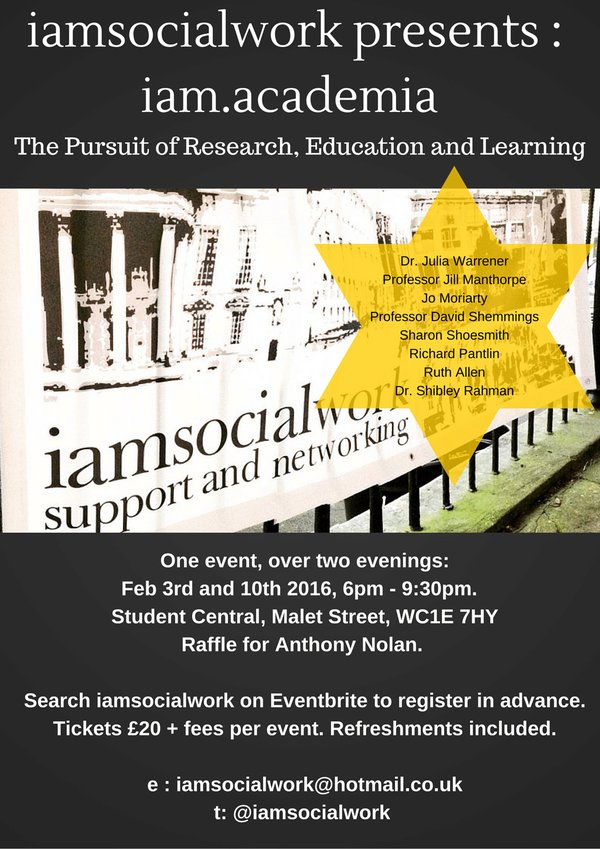I will be giving a talk on “Co-production, co-design and co-construction of dementia policy”
to book tickets and for venue details please see here
https://www.eventbrite.co.uk/e/iamsocialwork-presents-iamacademia-tickets-19749806202
Here is the list of speakers for my night!
The timing of speakers for Feb 3rd 2016 is as follows 6-9:30pm
6pm arrival
6:30-45 Zoe
6:45-7:30 Jo and Jill
7:30-8 Julia
8-8:20 Break/food
8:20-50 Shibley
The flyer is here.
There will be pizzas on the night for anyone wondering about food and refreshments will be free – wine, snacks, tea and coffee. That should keep the energy high.
The line up (apart from me) is incredible. I do strongly urge you to come if you’re around and you’re interested in the topic of continuing to pursue research and evidence to better practice. I hope there to be much much engagement and participation for my talk, aimed at qualified social workers or social workers in training.
Please follow the organiser Zoe Betts (@iamsocialcare). Zoe’s motivation for doing this is described here in this excellent Community Care article.
Here is my presentation

